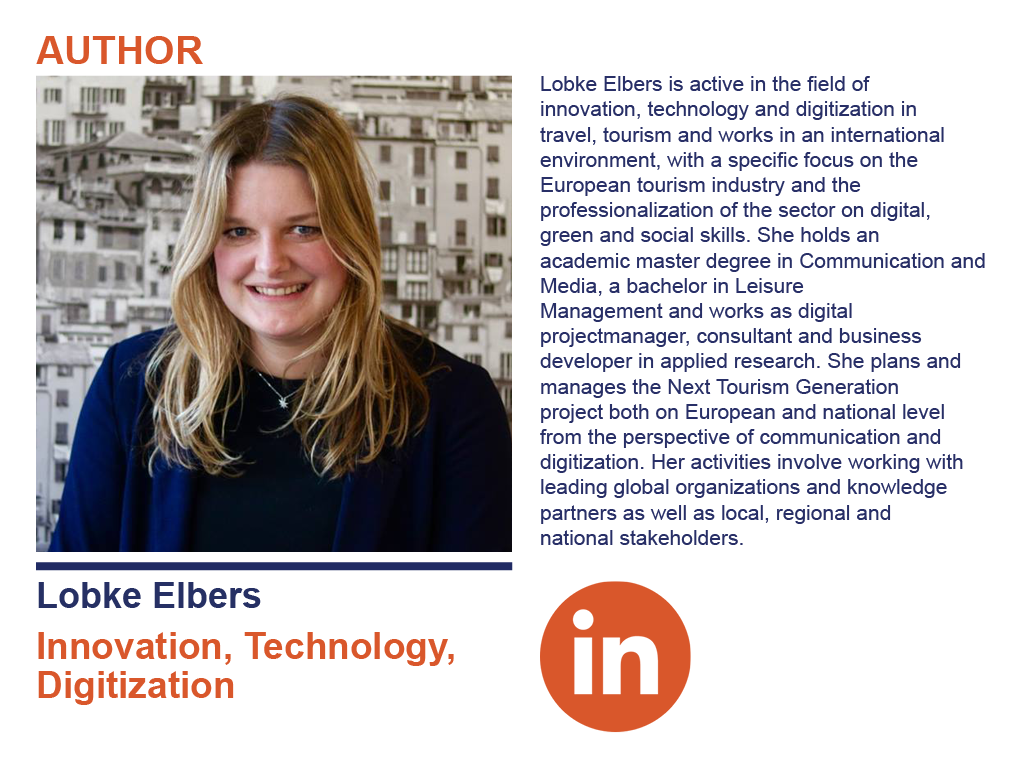Tourism Top calls for a reset of destinations and the need for young talents
Tourism Top NL: reset of destinations and young talents are needed
The consequences of the corona crisis for the hospitality sector in particular are enormous. At the same time, we see that the crisis is also leading to new, innovative revenue models and surprising forms of cooperation. During this special virtual edition of the Tourism Top The Netherlands, experts discussed the theme of “inspiring and innovating in times of crisis” with various entrepreneurs and (international) experts.
State Secretary for Economic Affairs and Climate in The Netherlands Mona Keijzer, entrepreneur Gunay Uslu, Professor Jeroen Klijs, tourism expert Doug Lansky and many others gave their vision on how creativity and innovation can contribute to the sustainable recovery of The Netherlands as a destination that could be inspiring for other European countries as well.
The state of the destination
The discussion centred around topics such as: How are The Netherlands currently doing as a destination? What about tourism in this country, now that various measures apply because of COVID-19? In recent years, the Perspective 2030 of the National Board for Tourism and the sustainable development of the destination have been central. But how do we work on sustainable recovery right now and avoid falling into the same pitfalls as before?
Guest speaker Doug Lansky from Sweden thought that the focus on only more tourists will not help the sector in the post-Covid-19 era.
Companies need to think “out-of-the-box” and develop special concepts that provide a unique experience for which guests are willing to pay extra. In Lansky’s view, entrepreneurs should not be afraid of failure and simply try out new ideas.
Human capital: young professionals are needed in tourism
‘’If the Dutch go on holiday in the Netherlands en masse, there is a bright future ahead for the sector”, State Secretary Mona Keijzer stated. But according to her, entrepreneurs should also consider what they should change about their company if COVID-19 stays with us for a longer period of time. To this end, the Ministry of Economic Affairs and Climate Policy supports so-called field labs where experiments are being carried out with new revenue models within the 1.5 meter society.
State Secretary Mona Keijzer sees that there is a great opportunity for the destination of the Netherlands, but she is concerned about the shortage of internships for students: “Otherwise we will have a shortage of professionals in the future who will need this sector very hard.”
This underlines the importance of the Next Tourism Generation project, that will establish a Blueprint Strategy for Sectoral Skills Development in Tourism to respond to the fast changing and increasing skills gaps in digital, green and social skills sets. To create transformative cooperation in five key tourism sub-sectors: hospitality, food and beverage operations, travel agencies and tour operators, visitor attractions and destination management to define a scalable mechanism and model for sustainable and digital curricula between the industry and education providers at a regional, national and European level.
The pandemic calls for a reset in tourism and education
In a poll among participants of the Tourism Top, it appeared that 81% of the participants want to use the coronacrisis for a reset of tourism. And that was a nice support for the Perspective 2030 policy of the State Secretary who, was already working on this before the corona crisis: “We must use this crisis to reset tourism by determining how many guests we want for each place and what type of guests we want to attract.” This states the importance of being more aware of the opportunities for sustainable/local hospitality, attracting specific target groups like Gen Z travelers, and to facilitate all of this, we must be aware of how to make progress in educating tourism online to young professionals.
Different times ask for different approaches.
Protecting nature, culture, and developing high quality products and experiences for locals and visitors are the biggest challenge for almost every tourism destination. Such ambition starts with educating the next generation and adapting as professionals.





No Comments